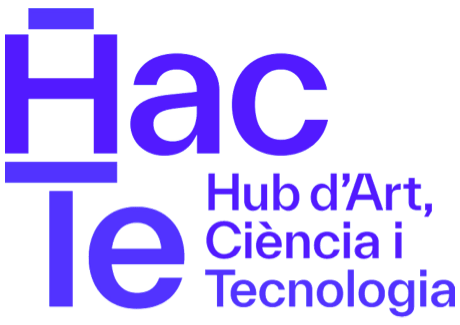Venues
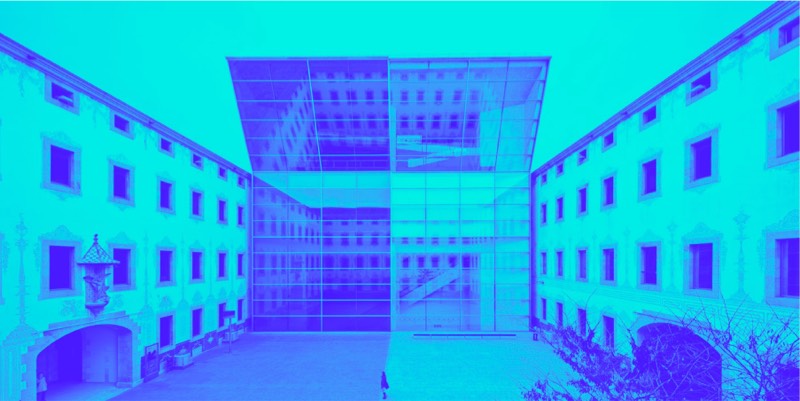
Main venue location
CCCB: Centre de Cultura Contemporània de Barcelona
Montalegre, 5, 08001 Barcelona
The CCCB is a multidisciplinary cultural centre that deals with the key challenges of contemporary society through different languages and formats.
It offers an extensive programme that includes major thematic exhibitions, conference series and literary meetups, film screenings and festivals. The CCCB’s activities focus on creative research and knowledge production, implemented through its own major projects and other associated proposals and festivals. The CCCB works in collaboration with international institutions and agents and also maintains ties with artists, creative collectives, curators and independent cultural agents based in and around Barcelona, providing them with support and visibility and leveraging their creative capital. The CCCB researches new educational methods, it employs tools for knowledge and production under constant critical revision and seeks out collaborative and experimental methodologies to generate processes for revitalisation and mediation.
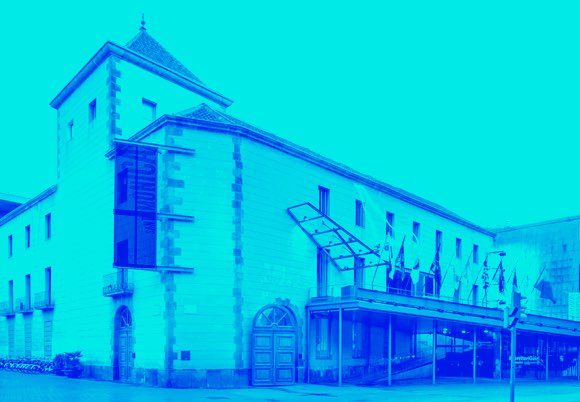
Main exhibtion venue location
Santa Mònica
La Rambla, 7, 08002 Barcelona

Santa Mònica is an interdisciplinary arts centre located at Las Ramblas of Barcelona, dedicated to promoting contemporary creation. Its aim is to serve as a platform for the dissemination of contemporary creativity in Catalonia and as a space for reflection to promote debate and generate ideas about the concepts surrounding artistic creation and its relationship with the public.
The centre starts from the premise that culture is not something static, that it is neither useless nor contemplative, but rather something capable of acting as a tool to speak to us of the present and from the present, to unite us and feed us mutually, to connect our stories with various appropriable futures and to open up new questions for us. Culture is conceived, moreover, not as a body that comes finished from the outside, but as a process in constant mutation that involves us.
Today more than ever, we are all builders in real time. Art is the tool at hand that we use every day, inventing new sounds and words, static and moving images, to investigate and experiment with new cultural forms. Art opens up new imaginations capable of giving us meaning in a world full of uncertainties.
In this cultural scenario, Santa Mònica aims to become a space in constant construction of new shared meanings. Inhabited by artists with multiple voices and coming from different disciplines, it assumes the new responsibility of generating frameworks of cultural action open to participation. Santa Mònica periodically invites a group of artists from different fields to work collectively on creative projects. At the same time, several guilds, hybrid groups formed by public call, experiment with the same institutional infrastructures from their artistic practices as an additional part of the programming.
In total, more than forty artists take part every four months in a process of shared construction, grouped under a theme that also takes shape collectively. The original cloister of the centre – an architectural category that links pre-modern and post-digital creation – thus acts as a community resource, in which builders, together with the various active guilds, work collectively in exercises of liquid authorship. These exercises are resolved in exhibitions and experiential and participatory actions, open to the creativity of citizens through multiple mediations in the centre, in the street and online.
The derived exhibitions and actions, therefore, are not anticipated as preconceived and pre-planned programming, but are understood as the results of multiple processes of genuine research, in which error and indeterminacy are always integrated. At Santa Mònica, everything that happens previously and experimentation subject to variations, rectifications and errors typical of open processes.
The results – exhibitions, actions and their corresponding multiple mediations – are focused on provoking, in a second phase, several artistic processes aimed at citizen participation that lead us to open up new meanings. Creators activated at different levels and the citizens themselves act in connection with the centre in a network logic that provides active roles of concretion and collective decision-making. Through this exercise of institutional hierarchy, the new Santa Mònica embraces a methodology that encourages diverse formulas of horizontal participation.
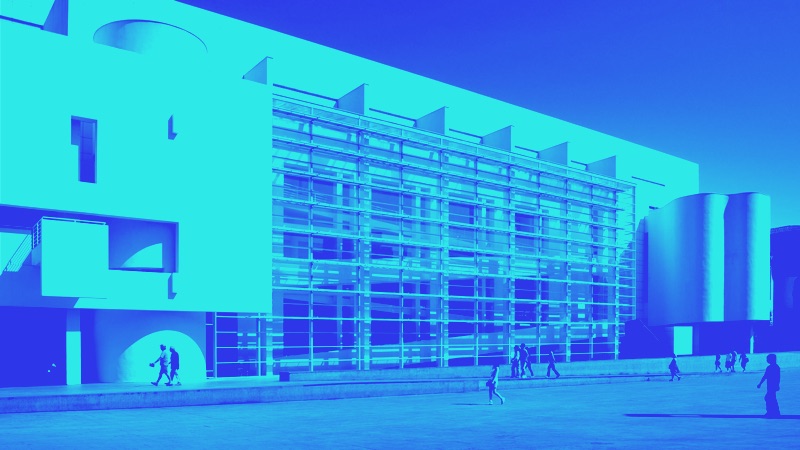
Venue location
MACBA - Convent dels Àngels
Acces from Plaça dels Àngels, 5, 08001 Barcelona
The MACBA aims to encourage enjoyment and interest in art and contemporary culture through a transformative impact and aspiration among individuals and society. Its mission is to bring contemporary art to life with a particular focus on Catalan production. Through research, the generation of knowledge and dissemination, it aims to encourage enjoyment and interest in art and contemporary culture through a transformative impact and aspiration among individuals and society. The MACBA wishes to play its part in building a freer society with a sense of critique.
The MACBA is an institution that combines the responsibility of looking back at the recent past (in art) and a role in building the future. It works through art and all while rejecting a single hegemonic narrative From this perspective, its mission focuses on researching and disseminating today’s art among broader audiences so as to trigger social transformations by empowering visitors and users to engage in intense democratic, cultural and educational behaviours.
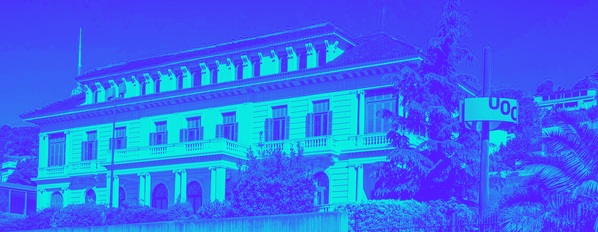
Venue location
ISEA2022 Barcelona Headquarters UOC
Av. del Tibidabo, 39, 08035 Barcelona
The UOC is a global university and a digital native. Its mission and public duty is to provide people with lifelong learning, and as a part of this, it generates knowledge in the intersection between technology and the social and human sciences.
The UOC’s vision of the future is shaped by its ambition to transform higher education in the digital era. This is rooted in its firm belief that universities must attain more strategic responsibility and achieve greater social impact by acting as hubs that share knowledge throughout society.
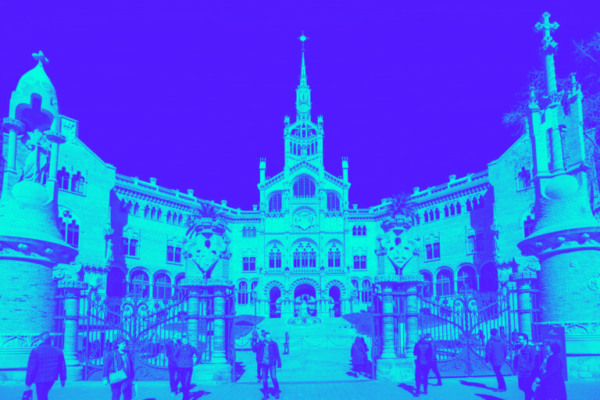
Exhibition & Main Ceremony Venue
Recinte Modernista de Sant Pau
Carrer de Sant Antoni Maria Claret, 167, Barcelona
After more than a century as the home of the Hospital de la Santa Creu i Sant Pau, an ambitious restoration project following the transfer of all healthcare activities to the new Hospital has restored the cultural and artistic glories of the Sant Pau Art Nouveau Site, the most important work of Catalan architect Lluís Domènech i Montaner.
With this transformation, the Sant Pau Art Nouveau Site, in which history and innovation go hand in hand, has become a new point of reference in the city of Barcelona.
Sant Pau hosts several resident organisations working in the fields innovation, sustainability, health and culture, among others. In addition to running their own programmes and projects in the Site, these organisations undertake joint initiatives geared to finding meaningful responses to the challenges facing society in the twenty-first century.
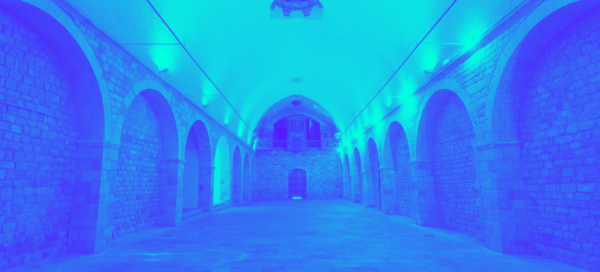
La Capella is the space that the Institut de Cultura de Barcelona dedicates to emerging creation. In recent years, his activity has focused on organizing exhibitions in order to bring the most innovative proposals of the city’s artists closer to the public. Barcelona Producció, which began in 2006, is now the central project in La Capella’s programming. Its aim is to promote the participation of artists and professionals in the sector, selected by an independent jury based on public calls.
The Old Hospital Chapel is located in the monumental complex of the Hospital de la Santa Creu and the Casa de Convalescència, and is a building listed as a historical-artistic monument of national interest.
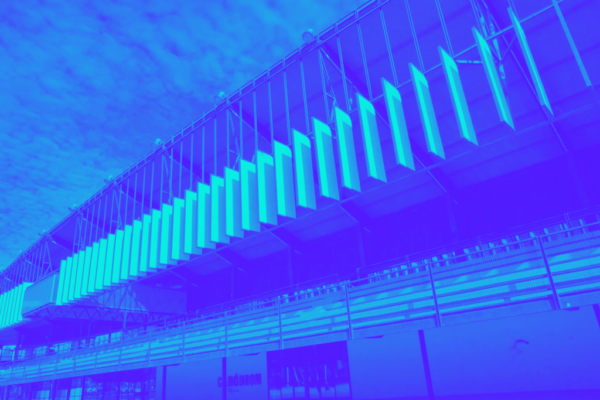
Conference Venue
Canòdrom
Carrer de Concepción Arenal, 165, Barcelona
The Center for Digital and Democratic Innovation is a unique space in Barcelona: a new and experimental athenaeum-laboratory opened to the neighborhood, the city and the world. An intersection of digital culture, open-source technologies, digital rights, and democratic participation. Through this confluence, it delves into a wide range of topics, such as feminisms, human rights, social justice, diversity, the urban model or sustainability.
Its challenge is to bring digital culture and democratic innovation closer to the nearby territory and at the same time be a meeting place for grassroots organizations, social projects, research centers, and citizens, who decide in a participatory way what Canòdrom is.
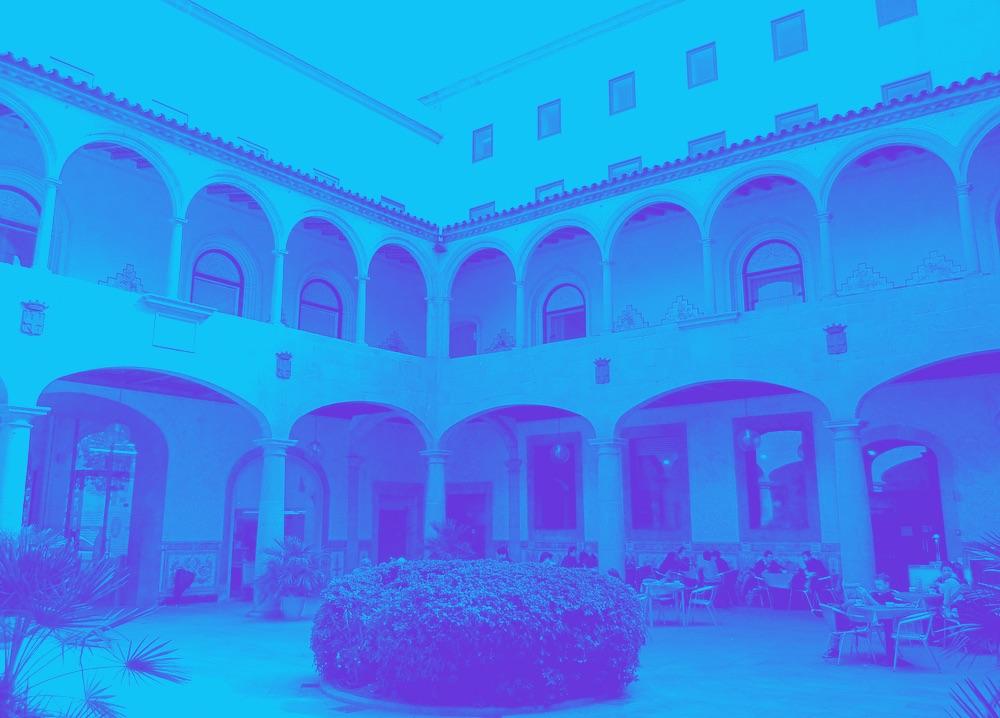
Created in 1986, its main objectives are cooperation with municipalities in all matters relating to training, information and advice on policies and cultural management.
Its work is therefore oriented towards services aimed at municipalities in these areas, with a special focus on the creation and dissemination of content, support for local actions and reflection on the main trends that drive the world of cultural management today. A task that continues to make CERC a national and international benchmark in the world of cultural management.
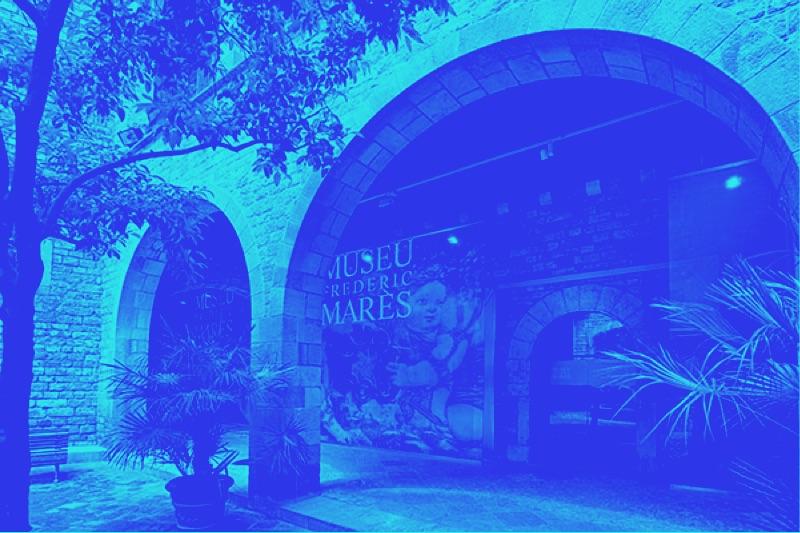
Opening Venue
Museu Frederic Marès
Plaça Sant Iu, 5, 08002 Barcelona
Other Venues
Also, with the aim of bringing the intersections between Art, Science and Technology closer to the public, ISEA2022 Barcelona has created the ISEA Extended Program, in Barcelona and other 10 cities which includes more than 50 activities along the Catalan territory. You can consult all these Venues here.




